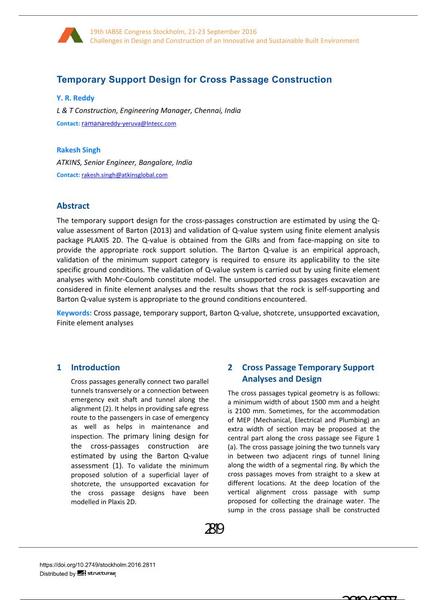Temporary Support Design for Cross Passage Construction

|
|
|||||||||||
Bibliographic Details
| Author(s): |
Ramana Reddy Yeruva
|
||||
|---|---|---|---|---|---|
| Medium: | conference paper | ||||
| Language(s): | English | ||||
| Conference: | IABSE Congress: Challenges in Design and Construction of an Innovative and Sustainable Built Environment, Stockholm, Sweden, 21-23 September 2016 | ||||
| Published in: | IABSE Congress Stockholm, 2016 | ||||
|
|||||
| Page(s): | 2819-2826 | ||||
| Total no. of pages: | 8 | ||||
| Year: | 2016 | ||||
| DOI: | 10.2749/stockholm.2016.2811 | ||||
| Abstract: |
The temporary support design for the cross-passages construction are estimated by using the Q- value assessment of Barton (2013) and validation of Q-value system using finite element analysis package PLAXIS 2D. The Q-value is obtained from the GIRs and from face-mapping on site to provide the appropriate rock support solution. The Barton Q-value is an empirical approach, validation of the minimum support category is required to ensure its applicability to the site specific ground conditions. The validation of Q-value system is carried out by using finite element analyses with Mohr-Coulomb constitute model. The unsupported cross passages excavation are considered in finite element analyses and the results shows that the rock is self-supporting and Barton Q-value system is appropriate to the ground conditions encountered. |
||||
| Keywords: |
finite element analyses FEA shotcrete temporary support Cross passage Barton Q-value unsupported excavation
|
||||
